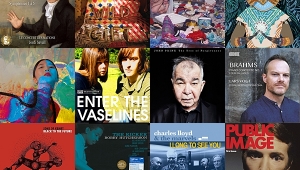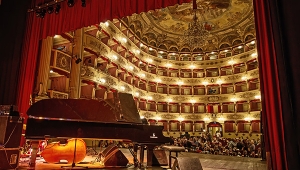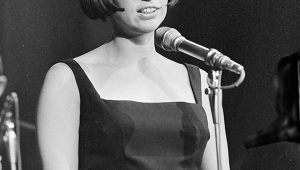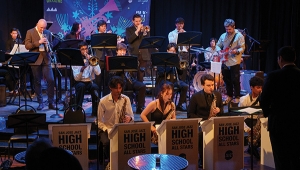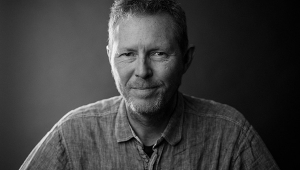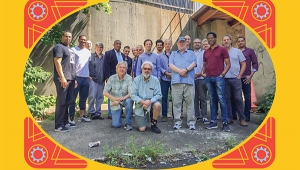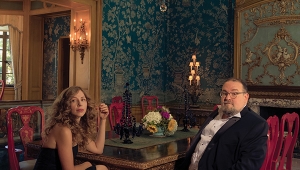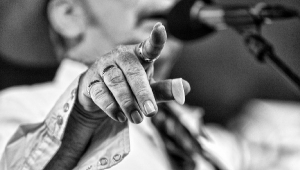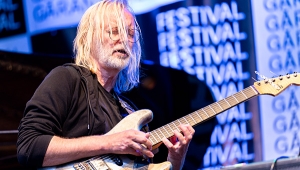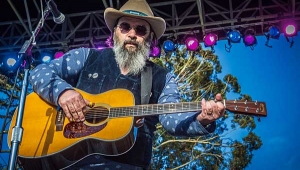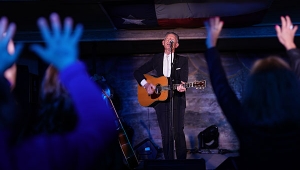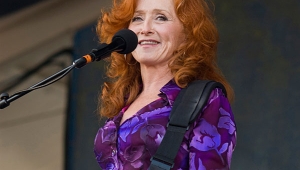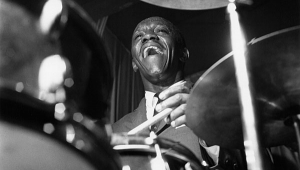| Columns Retired Columns & Blogs |
Deep River: the Cantus Spirituals Project Political Correctness?
The following letter appeared in May 2004 (Vol.27 No.5):
That's incorrect
Editor: I look forward to hearing Cantus' Deep River CD. However, I have deep reservations and concerns about the premise of the recording. In March (p.53), Erick Lichte is quoted as trying to create a recording that mirrors the African-American experience and goes on to attempt to re-create the ideals of Burleigh, Hairston, and Work.
None of this works. How can a bunch of guys who live in the American Heartland and have been trained in the classical tradition possibly understand the African-American experience, musically or otherwise? The African-American spiritual descends from shared conditions and beliefs strengthened by tremendous emotion and conviction. The tradition was not of a god to be feared but of one that could provide the believer a release from bondage and servitude. The European tradition is one of retribution and the power and beliefs of the Catholic church, even when the religion wasn't Catholic. The European church was the final salvation but not the savior. I may not be saying it right, but the belief system was quite a bit different. The African-American tradition in music and in beliefs in religion is not the European tradition.
If one believes that gospel music and spirituals are actually different, rather than an evolution in the condition of the practitioners, then the thought pattern needs a rethink. The attempt to intellectualize the music is the very problem with the approach: It's intellectually dishonest. The group's attempt to "elevate" the music with "sophisticated compositional techniques" reeks of disrespect and a lack of appreciation for the music.
Further, this trying to give it a Harlem Renaissance ideal misses the point of the music. The composers and writers of the Renaissance had ideals in trying to fit in and may have been a bit arrogant, but they believed the "race" needed to be elevated through actions to show that they were the equal of whites. No such elevation is needed or required today.—Dan Williams, dankarlamont@msn.com
Thank you for your thoughtful letter, Mr. Williams. The original performance practice of African-American spirituals is lost to us all—no one knows exactly what they sounded like when originally sung in liturgical worship. The spiritual lives today because of the arrangements of the men featured on Deep River, among others. These black arrangers and composers were classically trained musicians and wrote for the classically trained voice. Starting with singers like Harry T. Burleigh himself to Paul Robeson, Marian Anderson, and on through to Jessye Norman and Denyce Graves, the spiritual, as opposed to gospel music, has been sung by the classical singer. This is the tradition in which Cantus follows.
Deep River mirrors the African-American experience because it features songs that were a part of daily life and that express these people's greatest hopes and fears. On Deep River there are songs that offer religious and moral instruction. There are songs that speak of inhuman, backbreaking labor. There are songs that long for the Promised Land in this life and the next. There are songs about breaking free and stealing away. And there are songs that celebrate the ultimate freedom of the body and the soul. Instead of a boring historical tract, the album tries to teach the lessons of a shameful part of American history in the first person, from the heart.
It was not Cantus' goal to "elevate" the African-American spiritual through "sophisticated compositional techniques," but that was the explicit goal of composers such as William L. Dawson. Dawson's work, in particular, is some of the most fascinating because of how well it treads the line between a song's folk roots and wonderfully inventive arrangements that serve the message of the music. As Casey Kasem might say, these arrangements keep their feet on the ground while reaching for the stars. Cantus opted to focus on the arrangements of the first and second generations of black arrangers because they held on to much of the simplicity of the original song—as opposed to many current arrangers, who mix jazz and gospel styles into their work. It was the goal of Cantus to reach as far back into this tradition as we could.
Now to cut to the chase. Your argument about a punishing European god and a liberating African-American god seems to be another way of saying that white people ought not to sing African-American spirituals. As you may have been able to tell from the topless photos of Cantus in the March Stereophile, we are a predominately white ensemble. Essentially, you appear to be saying that because its members don't look like the people who sang this music, haven't been enslaved like the people who sang this music, and didn't live as the people who sang this music, Cantus could never understand what this music is about and that our performances of it are therefore dishonest. By this argument, wouldn't you also be saying that black African choirs are not fit to perform Bach? That Chinese violinists should stay away from Mendelssohn? That Mexican tenors better not touch Mozart? By your reasoning, none of these people "understands" first-hand the times and culture that birthed this music. Is this music off-limits to them as well?
While you question Cantus' right to perform the spiritual, something tells me that you wouldn't say this about other races and cultures performing Western music because it would sound racist. It is.
I can't argue that there is always something special when you can hear people performing their own music—Finns singing in Finnish, Argentines playing tangos, etc. However, Cantus works hard both to intellectually learn each style of music we perform and also to open our hearts to the times and the people from whence that music comes. Only then can anyone perform any style of music with integrity. I feel that Cantus has certainly accomplished this with Deep River. We have done our best to pay tribute to this great American music.
I hope you buy Deep River, Mr. Williams. After you have heard it, let me know what you think. I also hope you can hear the amazing job John Atkinson has done capturing the emotional commitment that 12 singing men have put into this remarkable American music. Close your eyes and forget about the color of our skins.—Erick Lichte, Artistic Coordinator, Education Director, Cantus, Maple Grove, MN
"The Negro folk-song stands today not simply as the sole American music, but as the most beautiful expression of human experience born this side of the seas. It has been neglected, it has been, and is, half despised, and above all it has been persistently mistaken and misunderstood; but notwithstanding, it still remains as the singular spiritual heritage of the nation and the greatest gift of the Negro people." from The Souls of Black Folk (1903) W.E.B. Du Bois
- Log in or register to post comments
